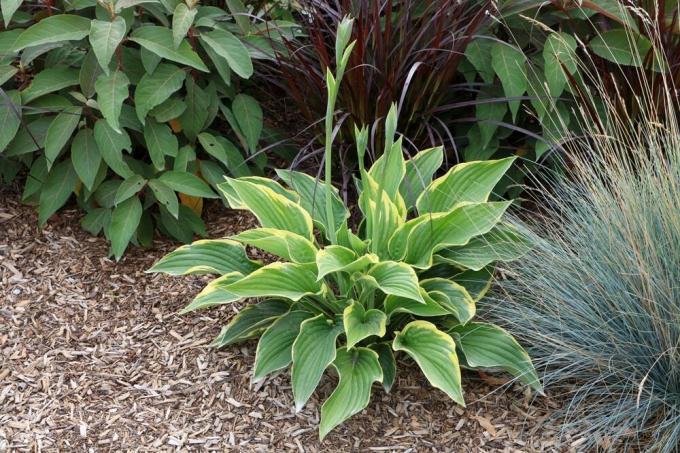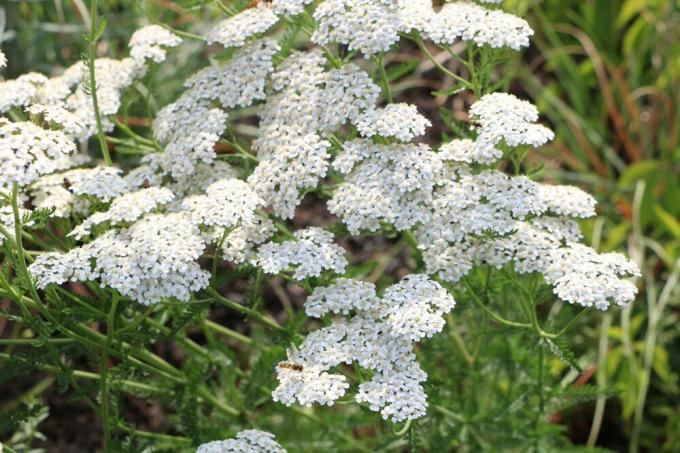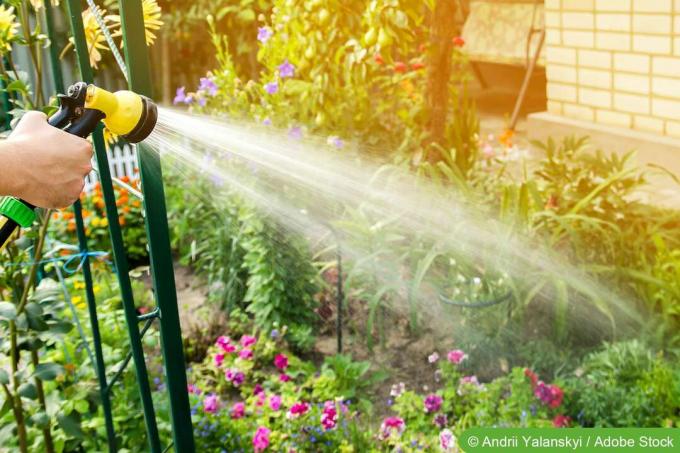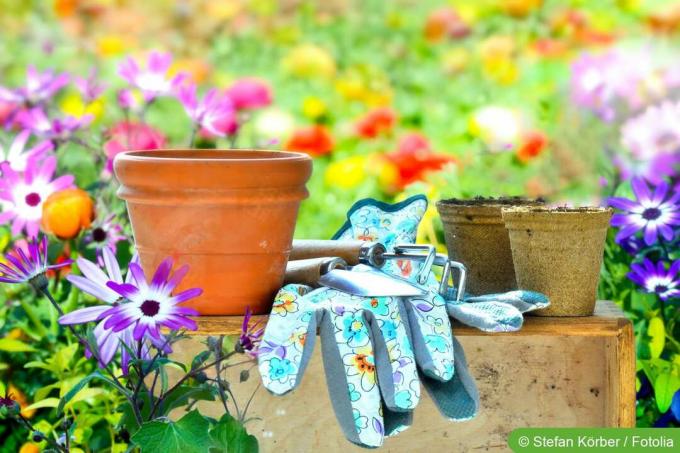

Table of contents
- hosts
- Toxic to humans?
- Toxic to animals?
- Hostas as fodder plants
- dogs
- cats
- risk of confusion
Hostas come primarily from Japan. Since the perennials are hardy, they also thrive in the home garden. Since they do well in semi-shady to shady locations, they are ideal plants for the dark corners of the garden. The only downside to hostas is that snails and other herbivores eat them because the plants are non-toxic.
hosts
hosts (Hosta) are a separate genus of plants. This belongs to the subfamily of the agave family (Agavoideae) in the asparagus family (Asparagaceae). The genus of heart leaf lilies, as hostas are also called, includes about 22 species. In this country they are mainly used as ornamental plants.
Toxic to humans?

All hosta species are non-toxic to humans. Hostas are not listed on the website of the Poison Control Center in Bonn. The flower buds are used in Japanese cuisine. But the flowers are also edible. They are candied, fried, pickled in vinegar and oil, or eaten simply as a steamed vegetable. Since hosta leaves are also non-toxic, there is no danger for children who want to "try" them. However, like the other non-toxic parts of the plant, they are not used in the kitchen, which is why they are sometimes classified as “inedible”.
Tip:
The sap can cause (skin) irritation in very sensitive people.
Toxic to animals?
Hostas are also non-toxic to many pets. This includes:
- horses
- Donkey
- hares, rabbits
- dogs
- cats
- Llamas, alpacas
- tortoises
- Bovine
- sheep
- pigs
- birds
- goats
Hostas as fodder plants
Although hostas are non-toxic to hares and rabbits, they are not recommended as a forage plant only. However, there is no danger for the animals if they like hostas in the garden to eat. Rather, the danger is for the plant, as it suffers from the leaves being eaten away.
A notice:
Since not all bunnies and rabbits like hostas, the plants are wrongly classified as poisonous.

Hostas are good shade providers and hiding places for tortoises. Since they are non-toxic to the animals, you can safely plant them in the turtle enclosure. If the turtle likes the plant, you don't have to worry about the animal. But the plant also survives the appetite, because turtles usually never completely eat hostas.
dogs
Why man's best friend nibbles on plants has not yet been finally clarified scientifically. What is certain, as any dog owner knows, is that animals do. Therefore, in dog households, the garden or Balcony or terrace can be designed with plants that are non-toxic to dogs. You don't have to worry about hostas because they are non-toxic to four-legged friends.
cats
Like man's best friend, cats always enjoy eating plants. It is not possible to predict which plant will be preferred by the "house tigers". So they can only discover a plant for themselves years later. If this is the case with hostas, you don't have to worry because the plants are non-toxic for your darling.
risk of confusion
Hostas are classified as lily plants on some websites (Liliaceae) assigned and therefore designated as poisonous. This may come from the German name "heart leaf lily". Botanically, however, the plants are not related. Planted in the garden, there is no risk of confusion with other plants, since hostas can be easily recognized by their spirally arranged leaves, which have long petioles. However, confusion between different Hosta varieties can occur. However, since all varieties are classified as non-toxic, this is more of a visual than a health issue.
Sources:
http://www.gizbonn.de/284.0.html
http://www.lwg.bayern.de/mam/cms06/landespflege/dateien/essbare_pflanzen.pdf
https://www.botanikus.de/informatives/giftpflanzen/giftpflanzen-und-tiere/
https://www.vetpharm.uzh.ch/giftdb/indexd.htm
 Home editorial office
Home editorial office
Learn more about gardening tips

Is yarrow poisonous? | Beware of confusion
Yarrow is a widespread herbaceous plant. The plant is very common on roadsides and in gardens and can be attractive to both animals and children. But the plant is harmless or poisonous. Here is the answer.

Remove Virginia creeper: the best remedies against clinging roots
Wilder Wein is a real climbing artist. Over time, it conquers the whole house with its foliage. But trying to get it off the wall is tedious, time-consuming and not always successful. What really helps?

Poisonous and non-toxic plants for horses - Attention poisonous plants
The horse has made itself indispensable as a sports partner, and its evolutionary survival seems assured. The poisonous plants that a horse can encounter in everyday life are becoming more and more diverse, they can even get into the hay or concentrated feed. A little information is therefore absolutely necessary so that a horse can go through its days as safely as possible; the article gives an overview.

Gardening Tips for November - Gardening Calendar
In November it's time to make the garden, balcony and terrace winter-proof. Potted plants that are not hardy should now be cut back and put away. The last vegetables are harvested in the vegetable garden. And by the way, leaves are being swept diligently. What else should you think about? We summarize the most important things.

Gardening Tips for July - Gardening Calendar
June was still busy in many areas, but things will calm down a little in some respects in July. Only those who have fruit trees can hardly save themselves from work now: the harvest is on. Which trees are cared for and how, what to do with the lawn and much more is in the garden calendar.

Gardening Tips for June - Gardening Calendar
June brings a lot of gardening with it, after the rather quiet May it can get quite exhausting. But the first fruits of the work can also be harvested: strawberries and some early berry bushes can be harvested. Of course, this also means that the ripening fruit must be protected from hungry birds.
